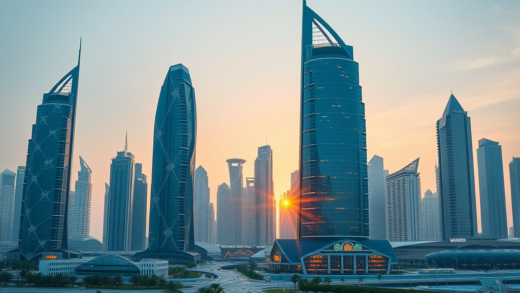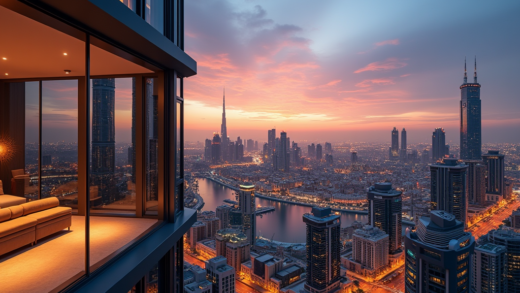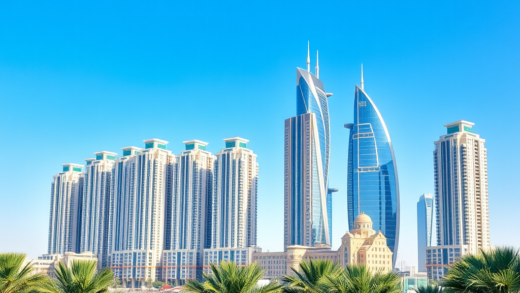The concept of sustainability is having a profound impact on Dubai’s real estate market, shaping not just the developments themselves but also influencing buyer preferences and investment trends. As a city in the midst of rapid growth and development, Dubai is focusing on eco-friendly building practices and sustainable living solutions. This shift is driven by various factors, including government initiatives, rising awareness among consumers, and global pressures to combat climate change. The emphasis on sustainability is creating a ripple effect throughout the real estate sector, affecting everything from property values to market dynamics. Consequently, understanding this evolution is crucial for homeowners, investors, and developers alike.
Sustainability Initiatives in Dubai
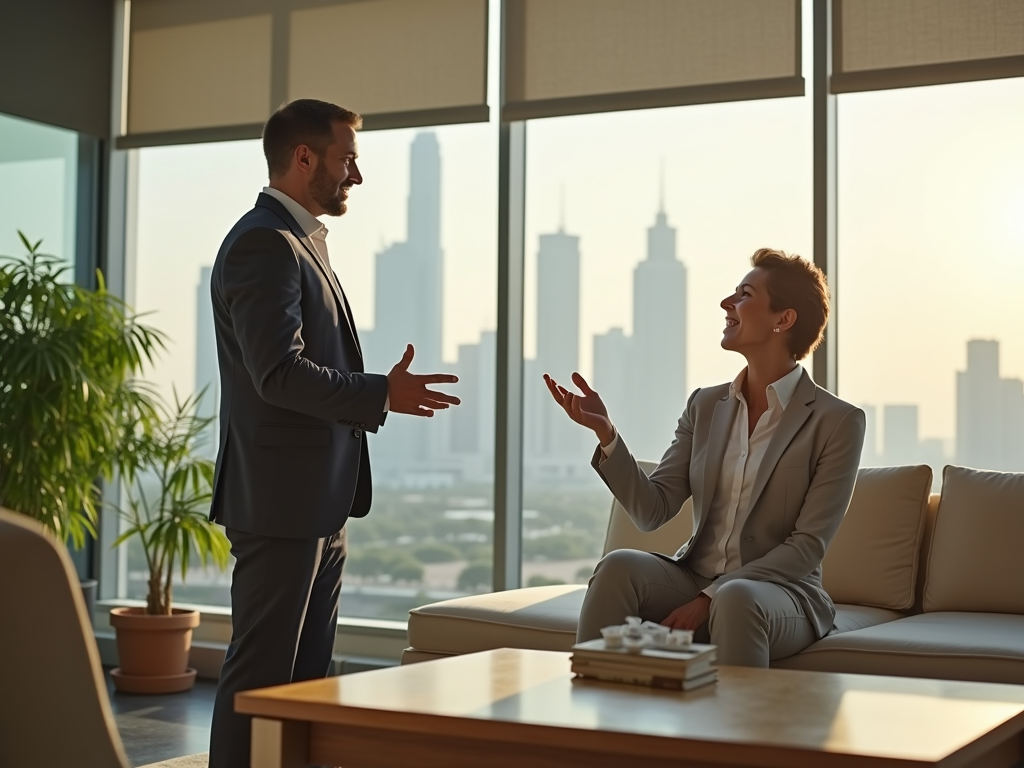
Dubai’s commitment to sustainability is reflected in numerous government-led initiatives aimed at transforming the urban landscape. These initiatives prioritize environmentally friendly practices and aim to position Dubai as a global leader in sustainability by 2030. Here are some key initiatives:
- Dubai Clean Energy Strategy 2050: This ambitious plan focuses on diversifying energy sources, enhancing energy efficiency, and promoting clean energy technology.
- Dubai’s Green Building Regulations: These regulations mandate that new buildings meet specified standards for energy efficiency, water conservation, and waste management.
- Dubai’s Sustainable City: This eco-friendly development is a model for sustainable living, featuring solar-powered homes, electric vehicle infrastructure, and vegetable farms.
These initiatives are not only beneficial for the environment; they also attract environmentally conscious investors looking for sustainable options in real estate, contributing to the rise in green buildings and eco-friendly properties.
The Rise of Green Buildings
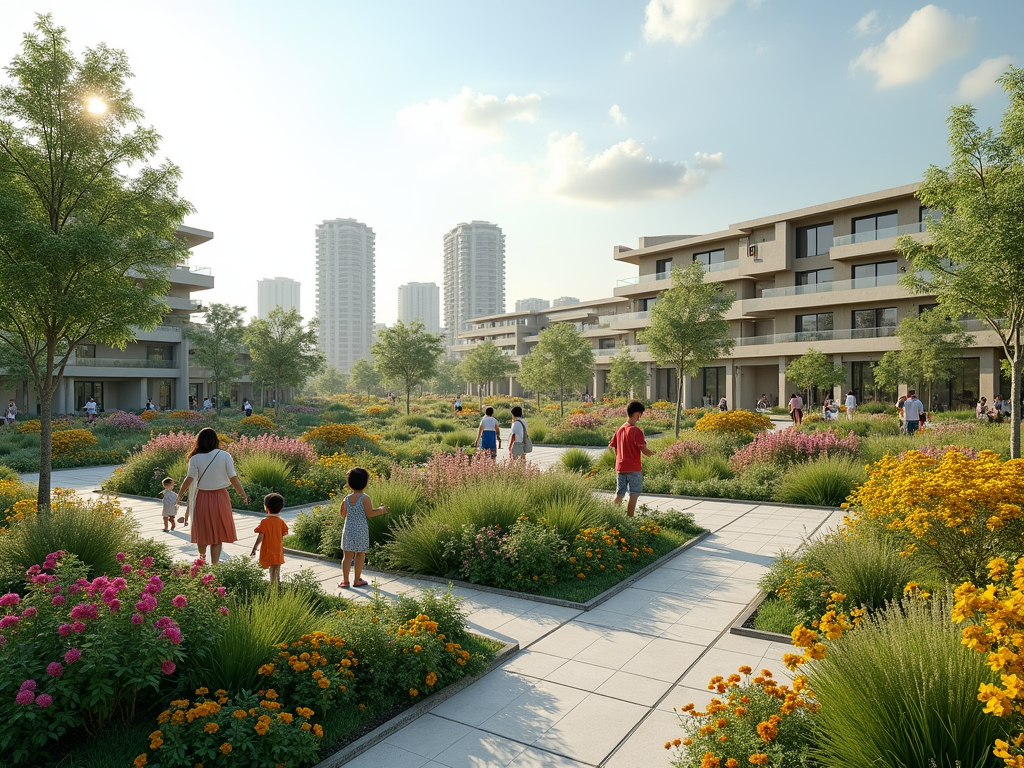
The rise of green buildings in Dubai represents a significant trend that is transforming the architecture and construction industry. Developers are increasingly prioritizing eco-friendly materials and renewable energy sources in their projects. The growing demand for sustainable spaces has spurred innovation in design and construction processes, leading to the following trends:
- Integration of Smart Technology: Smart building technologies enhance energy efficiency by automating electricity and water usage, leading to lower operating costs and increased tenant satisfaction.
- Use of Recycled Materials: More construction companies are incorporating recycled materials into their designs to minimize waste and reduce the carbon footprint associated with new buildings.
- Enhanced Landscaping: Green roofs and vertical gardens improve air quality, manage rainwater, and create a pleasant environment, elevating property values.
The increasing popularity of green buildings in Dubai not only supports environmental sustainability but also appeals to a market segment that prioritizes long-term savings and healthy living environments.
Market Trends Driven by Sustainability
As sustainability becomes a core value in Dubai’s real estate market, several key trends have emerged that are reshaping the landscape and buyer priorities.
- Higher Property Values: Sustainable properties often command higher prices due to increased demand and the long-term savings associated with their energy efficiency and low maintenance costs.
- Attracting Foreign Investment: Global investors are increasingly looking for sustainable projects. Dubai’s forward-thinking developments can attract overseas capital seeking eco-conscious returns.
- Prioritization of Location: Areas that emphasize sustainability are becoming more desirable among buyers, leading to shifts in real estate hot spots across the city.
These trends are influencing developer strategies, with many shifting resources toward sustainable practices that not only increase viability in a competitive market but also contribute to broader goals related to climate resilience.
While the shift toward sustainability presents numerous opportunities, it also comes with a unique set of challenges. Dubai must strike a balance between rapid urban development and sustainable practices. Major challenges include the following:
- High Initial Costs: Implementing green technologies and sustainable building practices often requires higher upfront investments, which can deter some developers.
- Awareness and Education: There’s a need for greater education among consumers and real estate stakeholders about the benefits of sustainability, which can drive more inclusive participation.
- Regulatory Hurdles: The evolving regulatory landscape may pose temporary setbacks for developers striving to meet sustainability benchmarks.
However, the opportunities arising from sustainable practices can outweigh these challenges, leading to innovative solutions that benefit both the environment and the economy. Developers and buyers alike can leverage these sustainability-driven trends to create a more resilient and prosperous community.
Итог
The integration of sustainability in Dubai’s real estate market is not just a trend; it represents a crucial paradigm shift towards eco-conscious living and building practices. By embracing sustainability, Dubai is positioning itself as a leader in responsible urban development, attracting investment and meeting the growing demands of environmentally aware consumers. As the market continues to evolve, sustainability will play a pivotal role in shaping the future of real estate in this vibrant city. Both challenges and opportunities will persist, but through innovative solutions and collective efforts, a sustainable urban environment can flourish, benefiting all stakeholders involved.
Часто задаваемые вопросы
1. What are the main benefits of sustainable buildings in Dubai?
Sustainable buildings offer lower operational costs, improved tenant satisfaction, and higher resale values, appealing to eco-conscious buyers and investors.
2. How does the Dubai government support sustainable real estate initiatives?
The Dubai government actively promotes sustainability through regulations, initiatives like the Dubai Clean Energy Strategy 2050, and incentives for developing green buildings.
3. What are green buildings?
Green buildings utilize sustainable materials and energy-efficient designs, focusing on minimizing environmental impacts and maximizing occupant well-being.
4. What challenges do developers face in incorporating sustainability in their projects?
High initial costs, regulatory hurdles, and the need for greater consumer awareness are key challenges developers face in adopting sustainable practices.
5. How do sustainable practices affect property values in Dubai?
Sustainable practices often lead to higher property values due to increased demand, lower operating costs, and the overall appeal of eco-friendly living environments.
